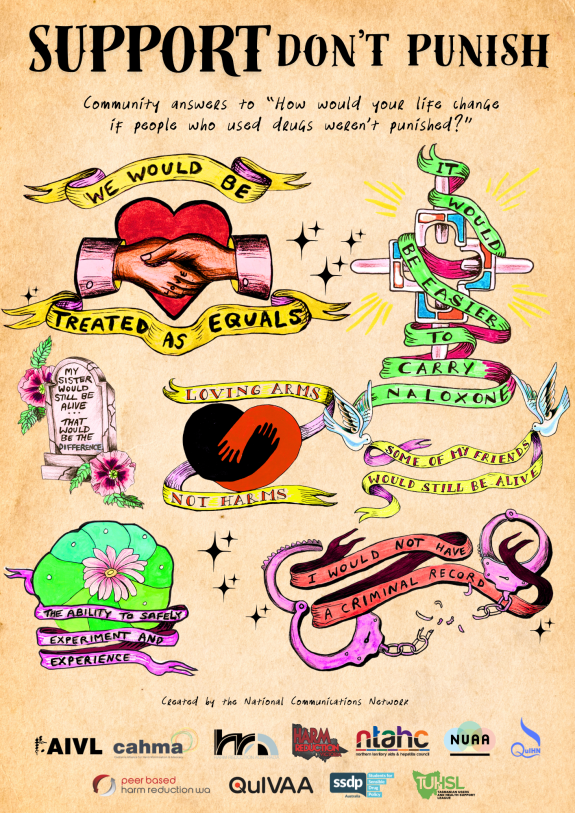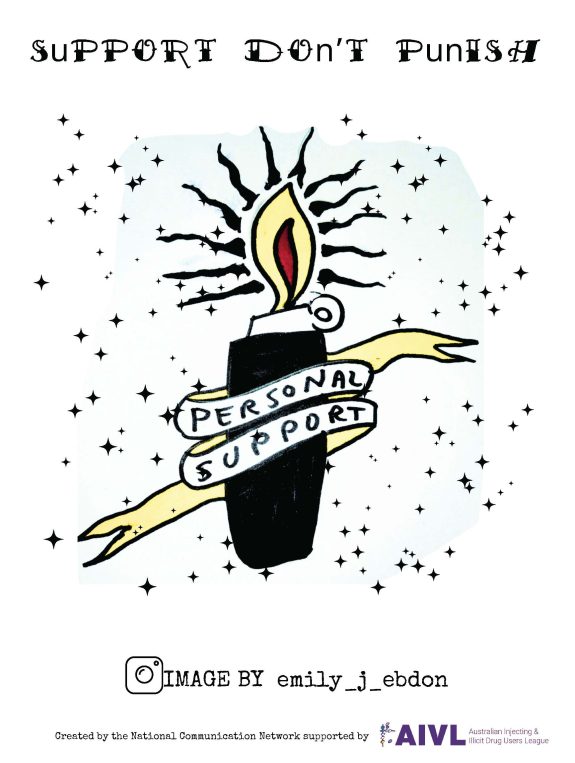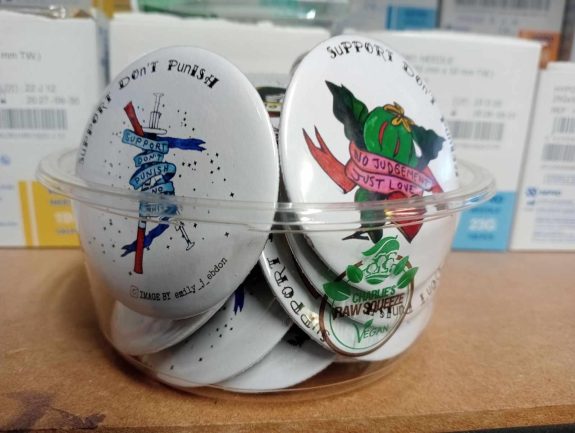Support. Don’t Punish. is a global grassroots campaign that calls for jurisdictions to implement drug policy that prioritises the health and wellbeing outcomes of people who use drugs and end cruel sanctions that target the people who use drugs community.
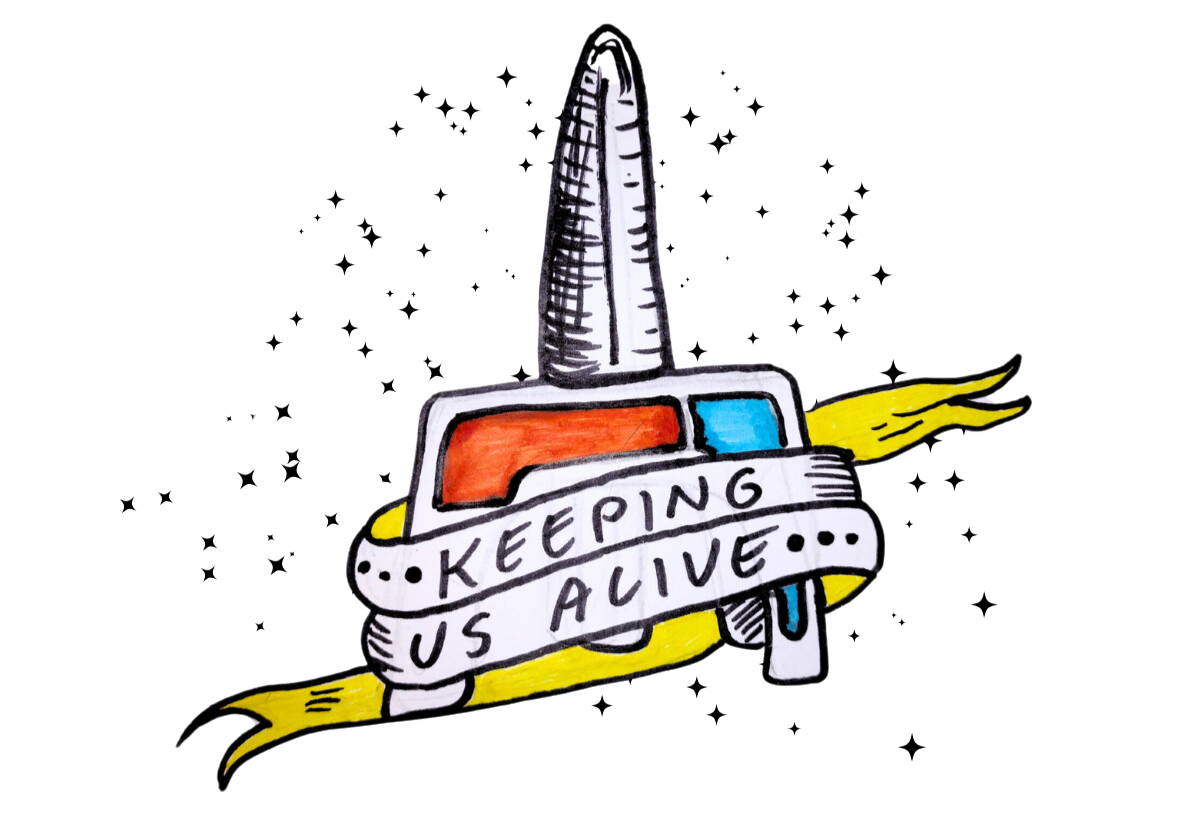
Improve health outcomes and save lives
Researchers, law enforcement experts and community advocates across the world consistently demonstrate how drug law reform and implementing effective peer-led harm reduction services including non-medical drug consumption rooms and drug checking services would save lives and fortify the region’s public health response against communicable and non-communicable diseases.
We can do better
Regardless, many countries including Australia are lagging behind the evidence, while many in the Asia-Pacific continue to penalise drug-related activities with draconian sanctions. Thailand, Singapore, Vietnam, China, Indonesia, the Philippines and Malaysia maintain the death penalty for certain drug offences. These punitive laws entrench and increase harms associated with drugs, create barriers to service access, disempower people who use drugs from advocacy, and freeze health policy innovation.
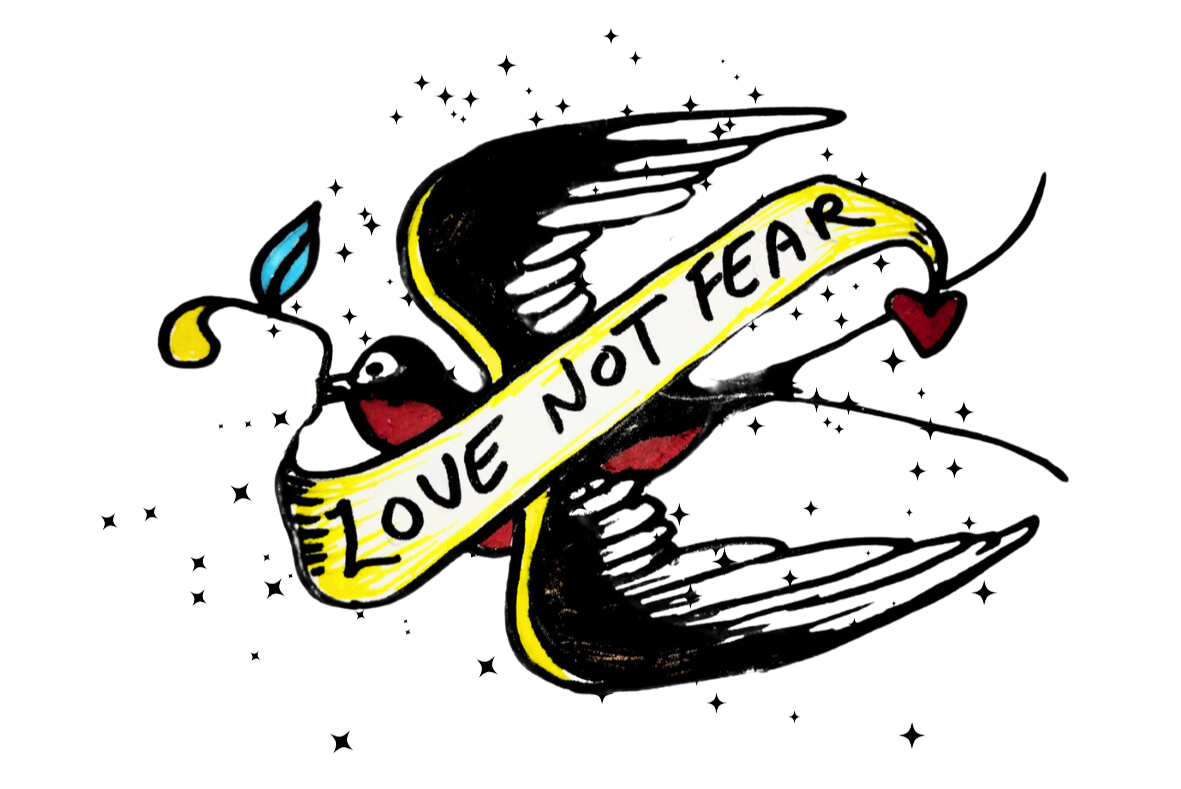
2025 Campaign
In 2025 The National Communication Network collaborated on a National Campaign to mark Support. Don’t Punish. The National Communication Network is a team of communication experts from The AIVL Network of Australian Drug User Organisations and Harm Reduction Programs.
In 2025, to mark “Support. Don’t Punish,” we asked our communities, “How would your life change if people who used drugs weren’t punished?” We received over 70 heartfelt responses and our and our talented peer artist Emily Ebdon turned these insights into impactful illustrations.
A huge thank you to all the members of our community who shared their thoughts, feelings, and opinions in response to the question, “How would your life change if people who used drugs weren’t punished?”
Special thanks to all the members of the National Communications Network.
Badge Templates
Got a badge maker? Use these pre-made templates to create badges with these community made Support. Don’t Punish designs.
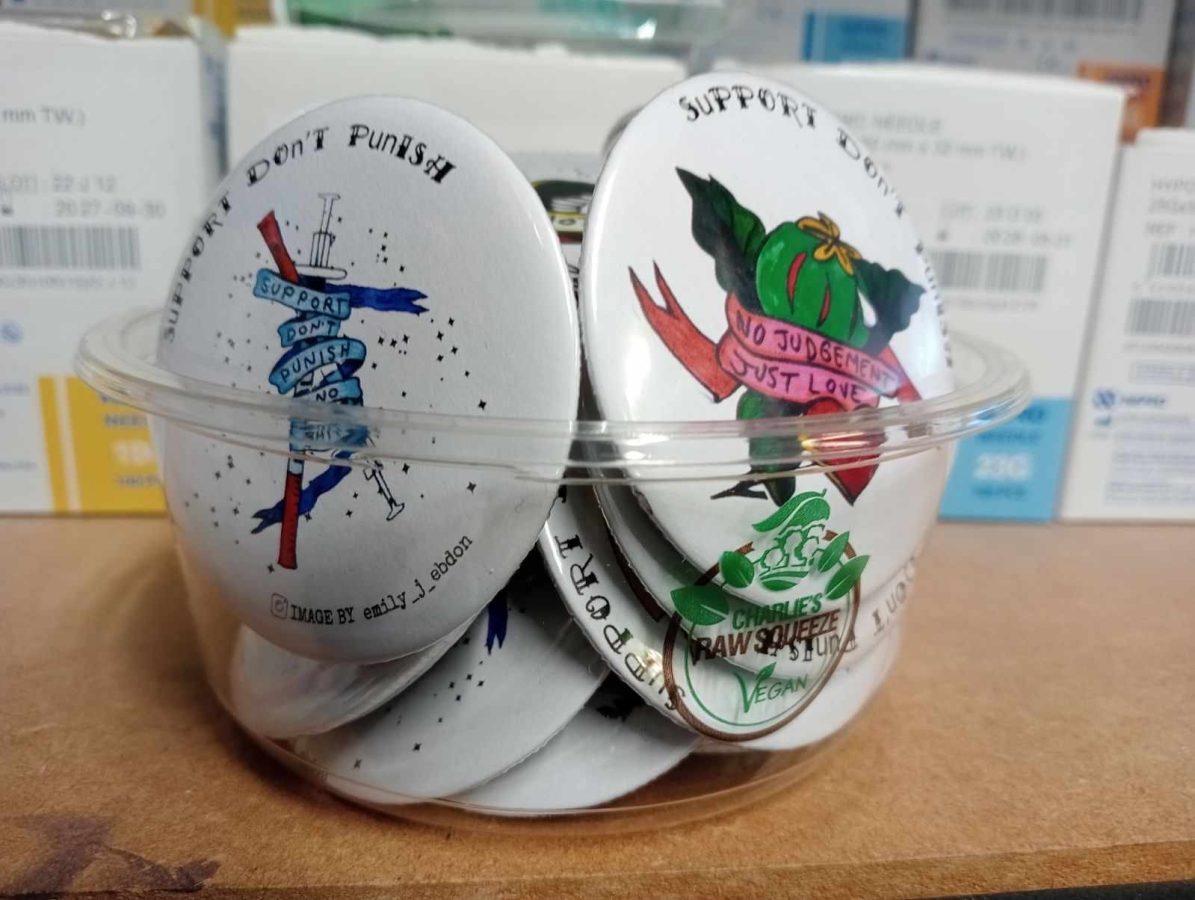
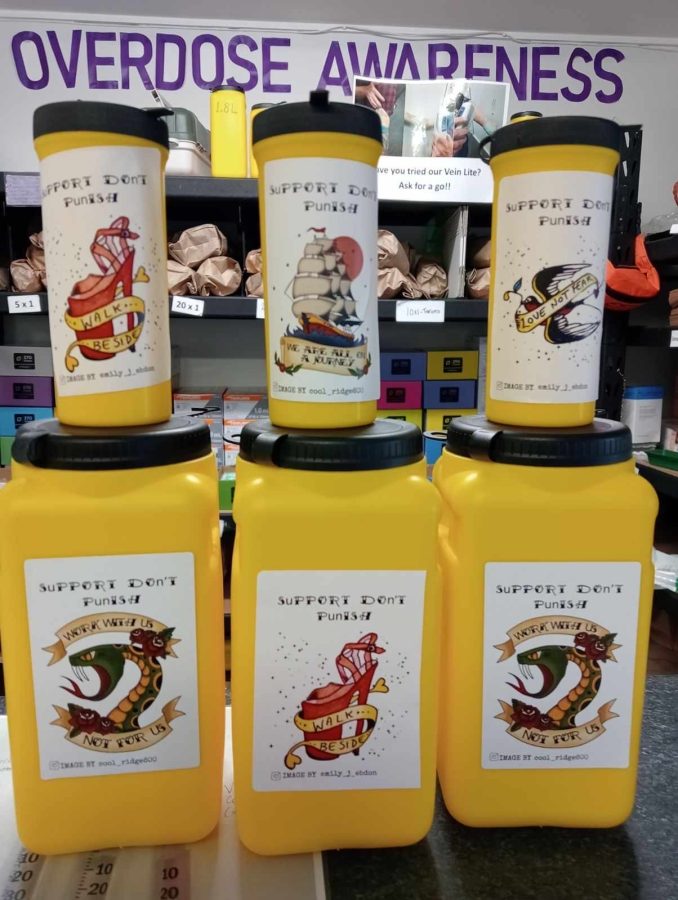
DIY Stickers
For sticker printing, choose a design linked below and use Avery – L7165 size labels or 99.1 x 67.7mmsize labels in your printer.
If you don’t have these, Officeworks sells them for $12 if you buy 3 packs. Avery Labels at Officeworks


